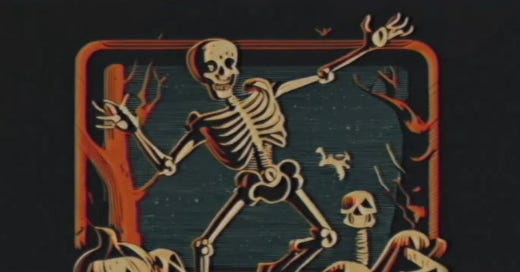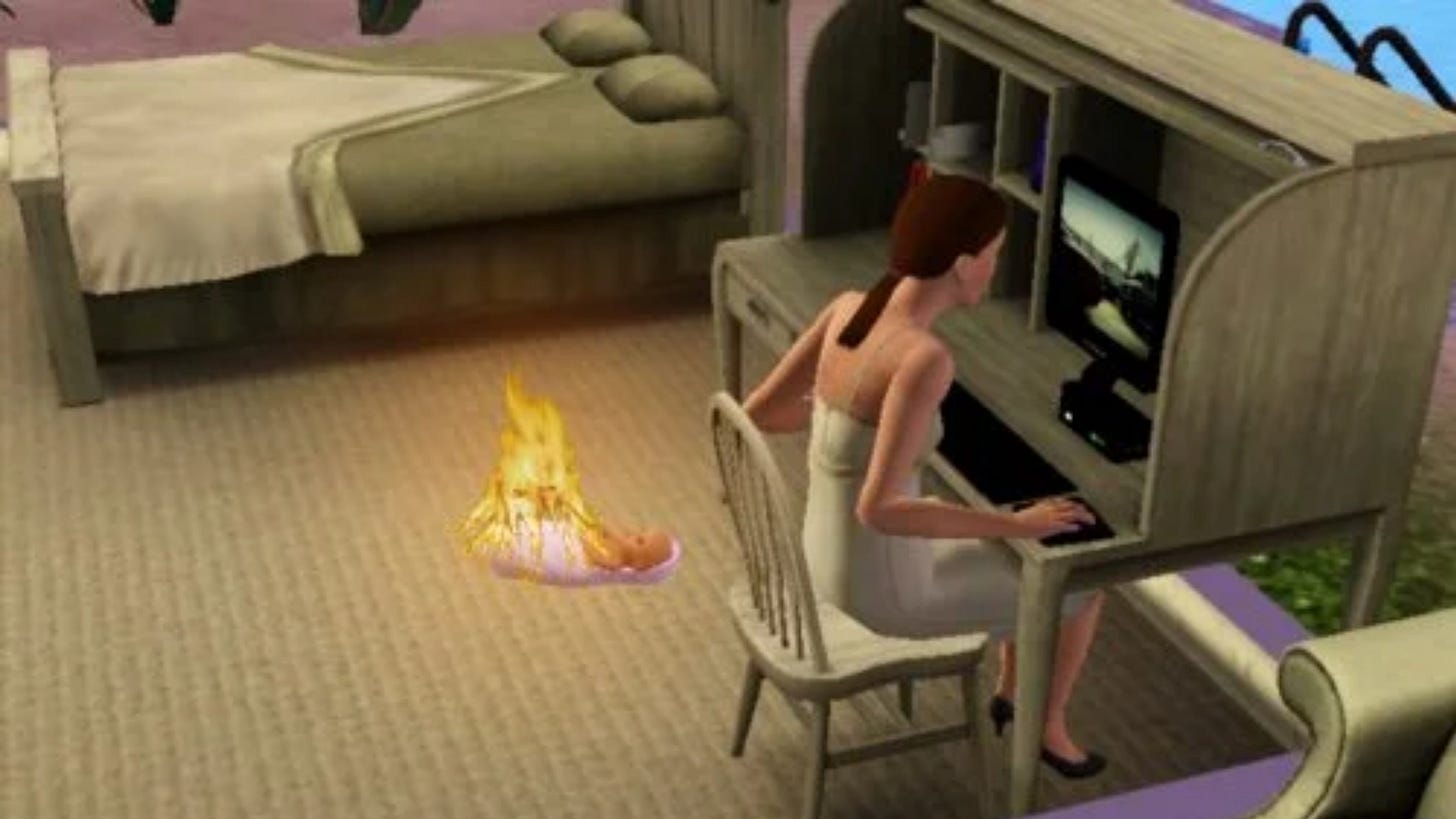WEEKLY RECAP #48: "Late Night With the Devil" AI Controversy, Scorsese Lawsuit & MORE!
3/17/24 -- 3/23/24
The Devil Is In the Details
Let’s not beat around the bush: we’ve all seen those disturbingly realistic OpenAI videos by now. It’s no longer a matter of “if” AI becomes a serious instrument in film production, but “when”. Everyone’s been speculating about the inevitable integration of AI into film and television for months and months now, and we now finally have our first clear-cut example. Late Night With the Devil, an low-budget ‘70s-set horror film that debuted a year ago at SXSW 2023, has now hit theaters, and some eagle-eyed viewers were quick to notice that several “We’ll Be Right Back” title cards shown throughout the film were in fact created using AI. (While a passing glance might not clue you in, focusing on the details of each image reveals wonky errors and asymmetrical designs that are the calling card of not-quite-there-yet art programs. Sure enough, the directors confirmed accusations of using AI in a statement to Variety:
“In conjunction with our amazing graphics and production design team, all of whom worked tirelessly to give this film the ’70s aesthetic we had always imagined, we experimented with AI for three still images which we edited further and ultimately appear as very brief interstitials in the film.”
This is where things get dicey: some people are calling for a boycott of Late Night With the Devil, urging audiences to pirate the film, buy a ticket for another film when going to see it, or refusing to watch altogether. These folks view the use of AI as inherently anti-art, which I kind of agree with… but it’s still a complicated situation for me. Some of you are probably expecting me to staunchly against this movie based on my previous rants about AI, but I think this specific case is perfectly complex. It’s clear that the movie is low budget, and what’s more, AI was used only for brief title cards that are barely in the movie. It can be reasonably inferred that the directors would’ve paid someone to make the art if they had more money, although I can’t imagine it would’ve been a crazy expense. AI is meant to be a tool, and using it to experiment with styles for graphics is not inherently a bad thing, but it’s also worth nothing that any AI art is noticeably off-looking if you pay attention, and it’s undeniable that paying human artists for more authentic artwork would’ve been better.
A lot of the vitriol towards Late Night With the Devil represents paranoia about larger studios using the same corner-cutting strategy with larger projects. This, of course, would lead to mass layoffs of artists that specialize in their craft, in favor of generic work that fills in the background but lacks the touch that makes craftsmanship so appreciable. In other words, Late Night may have only used AI for a few title cards… but what’s stopping the next indie movie from using it for a few scenes? And then a larger studio using it for the entire script? And then for replacing an actor with an AI model? And then creating the entire film with AI? On that front, I fully sympathize — corporate loopholes are slippery slopes — but I also can’t bring myself to act like the filmmakers behind Late Night With the Devil are, well, the Devil. Sure, what they did is an unfortunate precursor of very gross tactics to come in the future, but I’m not sure if punishing their film will do much besides stifle the already-struggling indie film market. The flood gates have already opened, and AI is here to stay. Between this film’s debacle and extras for Gladiator 2 claiming their likeness was scanned for AI usage, it seems like these types of sneaks in media is only going to become more prevalent, and spotting it may become its own little sport.
Operation: Fork-It-Over
Oh boy, is this one depressing. Any of you guys ever get publicly owned in the court of law as a result of your own doing? Well, it just happened in the entertainment world this week, and it’s a doozy. As someone who wants to make a career for himself in the film industry, it’s very tough to report on a story like this with an objective view, even more so to make jokes about it. Acclaimed director and most-followed Letterboxd user Martin Scorsese has been embroiled in a lawsuit that just got settled this week. The prosecution was led by screenwriter Simon Afram, who paid Scorsese half a million dollars to executive produce his WWII script “Operation: Fortitude”, only for Scorsese to do nothing with it. To make a long story short, Scorsese’s lawyers rebutted that the plaintiff has no understanding of the harsh reality of the film industry, adding that Scorsese offered the script to several major directors who all declined. The defense reminded the jury that it can take several years just for producers to attempt to make a script, far from the expectations Afram had that his script would start production mere months after giving it to Scorsese.
What makes this story rough isn’t that the right outcome is hard to discern — it’s that the answer is very clear, but comes at the expense of an aspiring artist basically having to be told on a public stage point-blank that no one wants to work with their script. I think discourse about stories like this can get very toxic, as people will jump to lambasting the artist, and while it was very ballsy of him to go forward with this lawsuit without the proper ground to stand on, I can’t pretend as though a part of me doesn’t sympathize with him. I think Afram’s real grievances are with how slow the industry moves, and it’s true! Movies take a long time to get made, and since we obviously don’t live in a true meritocracy, sometimes really great ideas are put on the back burner while terrible ideas are put on the warmer, much more desirable front burner. (I dunno how burners work. The metaphor is losing me.) My point is, it’ll be easy for people to roast Afram for having the gall to sue Scorsese for doing what an executive producer is supposed to do, but this feels more like a tragic case of naivety than outright stupidity. Making a movie — good or bad — is an uphill battle, and (much like WWII itself), many casualties are lost along the way.
“Get ready to learn Simlish, buddy.”
This week in “Things No One Asked For”: a Sims movie and Popeye movie are both in development! Hollywood scraping the bottom of its golden, cocaine-infested barrel is nothing new, but both these properties are especially bizarre choices for specific reasons. Let’s briefly delve into both.
First, Popeye the Sailor Man. Everyone and their weirdly knowledgable mother knows that the first Popeye movie (starring Robin Williams and Shelley Duval) was critically panned, so the choice to reboot this character seems pretty dumb, right? Well, maybe not. Older movies that with some promise that were botched the first time around are decent jumping-off points for remakes, as it gives newer filmmakers with refreshing perspectives the chance to make things right. Also, the screenwriter tapped for the project is Michael Caleo, who also wrote Jonathan Glazer’s Sexy Beast and an episode of The Sopranos, which implies there’ll be some sort of gangster spin on the adventures of everyone’s favorite nautical steroid abuser. Hey, I have an open mind about this one! It probably won’t be great, but the bar is pretty low. It’s reported to be a big budget production, so at the very least, I’m expecting to see a national spinach shortage just like the pink paint shortage that the Barbie production caused.
Speaking of Barbie, let’s discuss the other announced reboot of the week. Remember that weekly recap I wrote where I roasted all the terrible toy spinoff ideas that Mattel had in the wake of Barbie’s box office massacre? (You should read it if you haven’t, by the way — it’s probably the funniest recap I’ve ever written.) It turns out the post-Barbie wave is starting with a completely unexpected game spinoff: The Sims. You know, the computer game where you craft a cute penthouse for your avatar to fuck a hot guy with blue skin and an orange afro in? Yeah, that’s the one! The production company behind this project, LuckyChap, is run by Margot Robbie (among others), and is currently riding the success of Barbie — a film based on an IP that isn’t too dissimilar from The Sims conceptually. In that regard, this new idea makes sense, but in a way is the opposite of Popeye, in that it’s chasing a dragon that can’t really be brought back. Unless some really good talent with a unique idea are put behind this Sims movie, I’m not sure what the producers are expecting.
So, there you have it: two different IP revivals from opposite ends of the “starting potential” spectrum. As someone with no nostalgia for either of these properties, I’m way more interested in this Popeye reimagining, but maybe that’s just the man in me. Lord knows none of us are impervious to bias.






